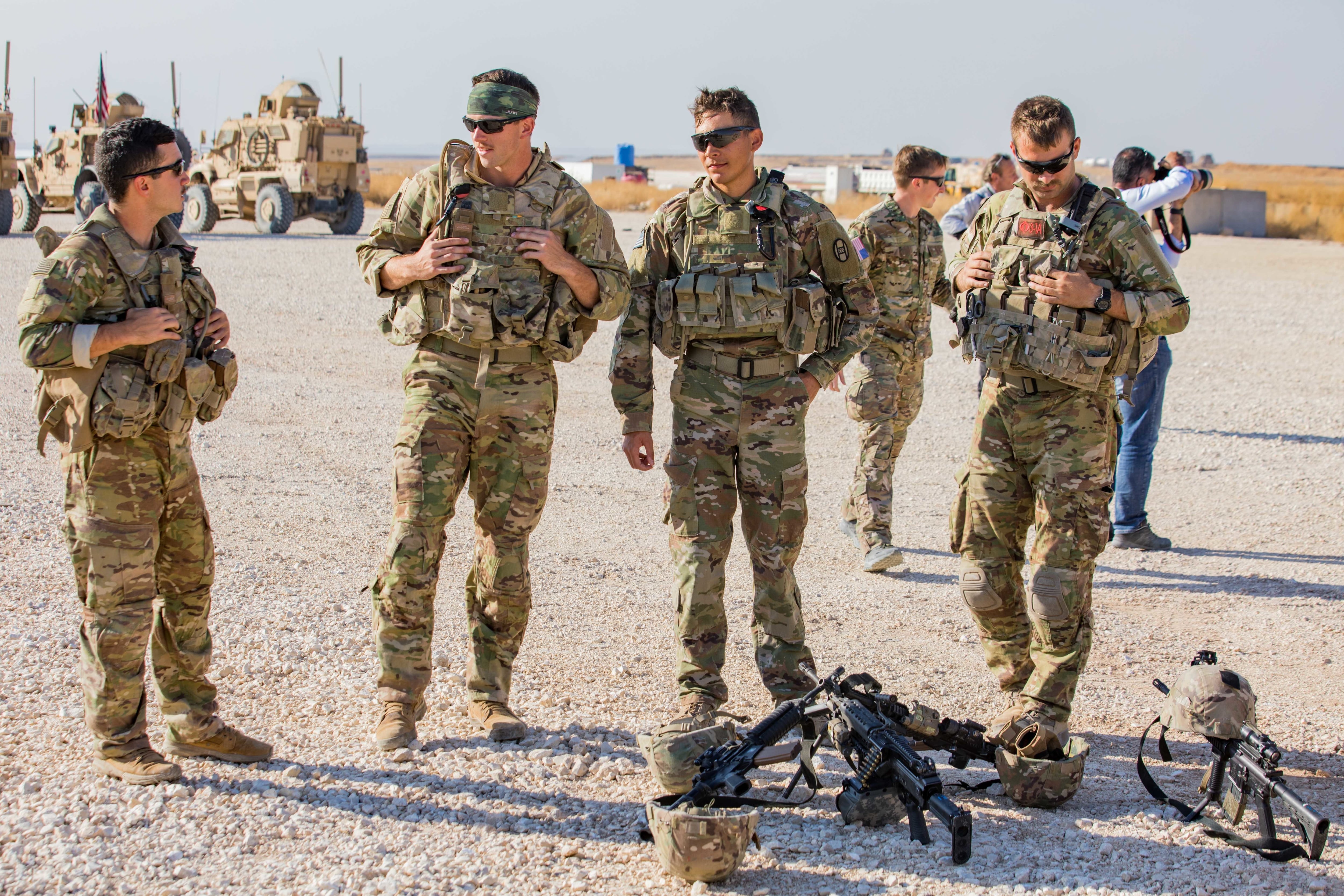The Defense Intelligence Agency said that ISIS took advantage of Turkey’s October 2019 invasion of northern Syria and increased attacks by nearly 20 percent, according to an inspector general report.
Officials from Operation Inherent Resolve, the U.S.-led coalition fighting the Islamic State group, pushed back on that, saying that DIA based its information on propaganda. There is agreement, however, on one thing: The death of ISIS leader Abu Bakr Al-Baghdadi did not degrade the jihadi group.
The DIA said in the IG report, that following Turkey’s military operation to rout out Kurdish militants in northern Syria, ISIS self-claimed actions rose from a monthly average of 55 attacks to 66 attacks.
The DIA detailed in the report that the figures of ISIS claimed attacks were pulled from the group’s online claims.
“This suggests ISIS continues to view the security environment in northeast Syria as more conducive to its operations,” the DIA said in the IG report.
Military officials with Operation Inherent Resolve and U.S. Central Command pushed back in the IG report on claims that the Turkish incursion has increased capabilities or attacks by the Islamic State.
OIR said in the report that ISIS’ claims of attacks were “most likely propaganda” and that OIR’s assessment that the Turkish military operations have not led to an ISIS comeback are based on “known facts.”
OIR detailed in the IG report that ISIS’ potential resurgence was likely stymied by other “armed actors” filling the void left by withdrawing U.S. troops from the region.
RELATED

Following President Donald Trump’s October 2019 announcement that U.S. troops would withdraw some forces from northern Syria, America’s anti-ISIS partner force, the Syrian Democratic Forces, made a deal with the Russian and Syrian regime forces to fill the power vacuum of departing U.S. troops.
Trump partially walked back his order to withdraw forces and agreed to a small residual U.S. force to remain in Syria to safeguard oil wells and prevent their capture by ISIS fighters.
A small contingent of M2 Bradley vehicles with the 30th Armored Brigade Combat Team supported the new oil protection mission.
CENTCOM said in the IG report that it did not see “compelling evidence” that the redeployment of American troops to Syria had any impact on changes to ISIS’ operational capabilities.
The Bradley fighting vehicles were eventually withdrawn from Syria by the end of November and the unit returned to Kuwait, the IG report noted.
Moreover, CENTCOM and the DIA both said in the IG report that the October raid that bagged ISIS leader Abu Bakr al-Baghdadi has had no immediate impact on the group’s ability to operate.
ISIS "remained cohesive, with an intact command and control structure, urban clandestine networks, and an insurgent presence in much of rural Syria, CENTCOM said in the report.
The Jihadi group “maintained the pace, scope, and complexity of its operations in SDF-controlled areas, but did not significantly advance its insurgency,” CENTCOM detailed in the report.
There are roughly 500 U.S. troops in Syria.
Shawn Snow is the senior reporter for Marine Corps Times and a Marine Corps veteran.




